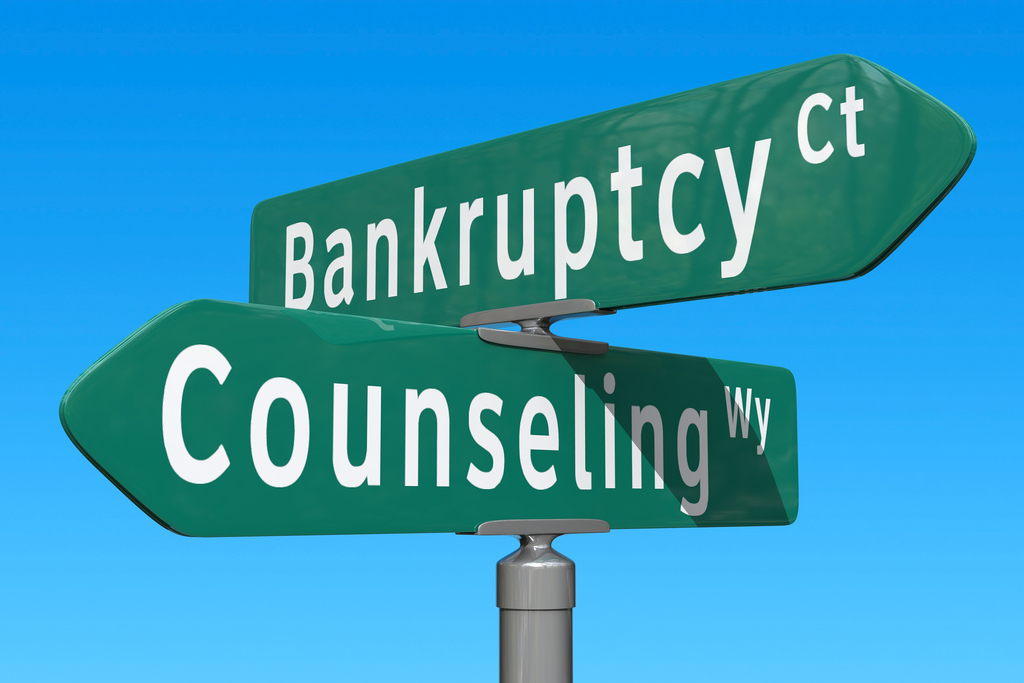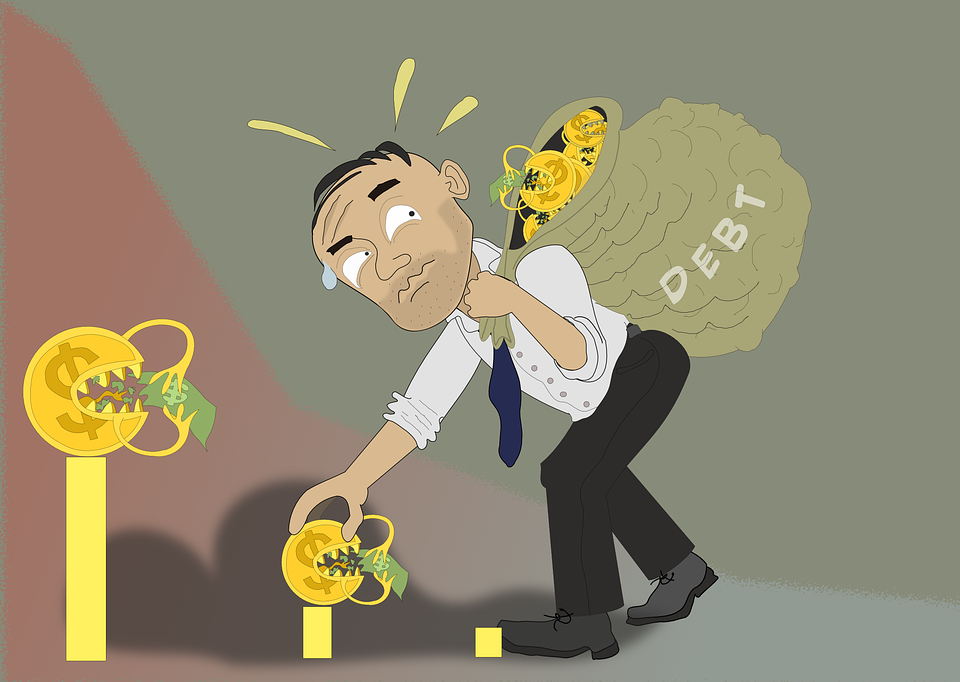
by admin | Bankruptcy, Consumer Proposal, Credit Counseling, Credit Repair, Debt Management

For many people, managing debt is a real challenge. Luckily, there are people who can help you to manage and pay off your debt. The people I’m referring to are credit counselors. The bad news is that not all credit counselors are the same. Some of them may not act in your best interest. For this reason, you need to find ways to separate the good from the bad. Once you know the ways of filtering out the ‘good’ credit counselors, it will become easy for you to find the right credit counselor for yourself. So, without wasting any further time, let’s take a look at the 5 ways to find the right credit counselor.
Know what you want
When looking for the right credit counselor for yourself, the first thing that you need to do is find out what you want from the counselor. Are you looking for general advice, simple budgeting, debt management, or bankruptcy counseling? Once you determined this, you can start searching for a credit counselor who ticks all the boxes.
Find out the services offered by the different credit counselors
When looking for a credit counselors, one of the most important things that you need to do is find out the services offered by the different counselors. It is true that debt counselling is one of the most important offered by a credit counseling agency. However, reputed counselors offer more than just debt counselling. So, look for counselors who offer budgeting and bankruptcy services in addition to debt management.
Determine how much you can pay for credit counseling
Let’s be honest, no one provides services for free including credit counselors. While your first session with them may be free of charge, you will have to pay for any follow-up sessions. For this reason, you need to determine how much you can afford to pay for credit counseling. Before working with a credit-counseling agency, inquire about their fees and costs. Ideally, you should get the prices or quotes in writing.
Find out about confidentiality
Most people who get credit counseling want to keep their information confidential. If you’re one of them then find out if the credit-counseling agency you’re thinking of working with keeps consumer information confidential.
Finding the right credit counselor is not easy. However, by using the 5 ways to find the right credit counselor mentioned above, you can make the task simple.

by admin | Bankruptcy, Consumer Proposal, Credit Counseling, Credit Repair, Debt Management

Today, the average American has more than a single credit card. This coupled with the American lifestyle of “gotta have it now” has led to a lot of problems. Specifically speaking, it has led to a lot of debt. In fact, in many cases, the debt has gone out of the control and individuals have been forced to file for bankruptcy. Believe me, bankruptcy is something you’d want to avoid. After all, living at the mercy of others is never a good feeling.
Are you facing financial difficulty and pondering filing for bankruptcy? If yes then you’re not alone. Make it absolutely clear that your debt has got nothing to do with your personality or way of living. Even the very finest of people may go bankrupt at some point in their lives. Most people who suffer bankruptcy are regular, hard-working people who encounter some sort of blockade. A single blockade whether it was an accident, reduction in wages or the loss of job can send you in the wrong direction.
Come what may, you cannot prevent the aforementioned blockades. What you can do though is limit living on credit. Your debt will start to multiply as soon as you start using your credit cards to pay for what you can’t afford. Eventually, your debt will cause you to go bankrupt. The best thing you can do to prevent such a situation from occurring is avoiding the things that lead to bankruptcy in the first place. Following are 3 tips to avoid bankruptcy that credit counselors recommend.
Develop a budget
This is a no brainer. If you don’t have a budget, there is a 90% chance that you’ll go bankrupt. Basically, you need to list down all your monthly expenses and allocate resources/money to them based on their importance. Limit the money you spend on unimportant things such as home décor, branded clothing, designer shoes, and so on. This will help you to better manage your debt and avoid bankruptcy.
Pay off your debt over time
If your debt hasn’t yet gone out of control, sit down and determine how much you owe. In such a situation, it is more than possible for you to pay off your debt on your own if you re-adjust your budget and use a debt management plan. Also, taking to a credit counselor would be a good thing to do in this situation.
Take help from credit counselors
As mentioned above, credit counselors can help you to better manage your debt. Additionally, they can advise you how to avoid bankruptcy. Knowledgeable people, credit counselors have a sound financial background and can tell you anything and everything you’d need to know about avoiding bankruptcy.
Bankruptcy is not a good situation to be in. Luckily, you can avoid bankruptcy by using the tips mentioned above.

by admin | Consumer Proposal, Credit Counseling, Credit Repair

There are many things you can do to make the mortgage process smooth. This includes determining borrowing power and researching the market. Let’s now take a look at the importance of determining borrowing power and researching the market.
Determining borrowing power
In order to minimize the amount you need to borrow, try to accumulate as much deposit as you can. By doing this, you will lower the interest that you’ll eventually have to pay. According to credit counselors, following are some of the monetary factors that you should consider before buying a house.
Potential rise in interest rates
Once the loan is established, you should consider the interest rates’ potential to rise. Once you’ve don’t that, make sure that you have a safety stock that allows you to make higher repayments in case the aforementioned situation occurs.
Fees and charges
Fees and charges other than the mortgage amount can be expected by those looking at buying a house. Depending on the financier and the buying price, these costs will vary. Costs such as loan establishment may be included in these typical additional costs. Some of the common charges that you may have to incur include:
- Insurance premiums
- Bank charges
- Legal fees
- Transfer duties
- Stamp duty
There are you have it—the things to consider when determining your borrowing power. If you want to know more you may have then you should talk to your financier or a credit counselor or www.egta.ca before you start looking for a house. Now that you know how you can determine your borrowing power, it’s time to look at the importance of researching the market.
Researching the market
When purchasing a home, there are several things to consider. If you want to avoid having to ditch the deal later on, research in the following ways.
Walk by the house and do spend time in the neighborhood
During the week, walk by the house, both during the day and at night. Spending time where the house is located is important. This will help you to decide if the neighborhood is safe to live in or not.
Find out the ‘days on market’
The amount of time a house has been on the market is an important thing to consider when purchasing a home. The most recent price reduction and the “days on market” are accessible through your agent.
Find out the amount of time the seller has owned the property
You need to know the amount of the time the seller has had the property for. If you don’t want do it yourself, you can ask your agent to do it for you.
Now that you know the ways to determine your borrowing power and research the market, you’re ready to get your loan pre-approved and buy the house. To find out how you can ensure regular mortgage payments, get in touch with a credit counselor.

by admin | Uncategorized

Whether it is a credit card balance, a student loan, an auto loan, or a mortgage, most of us have some sort of debt. As long as you’re trying to pay it off, your debt should not concern you too much. On the other hand, if you’ve allowed debt to accumulate so much so that it’s having an effect on your health then you may need to mend your ways and quick. You’re here for a reason and that reason is finding out whether you have too much debt. How can do that? Let’s take a look.
Determining your debt-to-income ratio is one of the easiest ways to find out whether you have too much debt. The percentage of your monthly income that goes towards debt payment is referred to as your debt-to-income ratio. According to many financial experts, the average household debt in the United States is $10,000. Your debt is likely is likely to be somewhere around that figure. Following are some signs that you have too much debt.
All your money goes towards debt payment
As mentioned earlier, determining your debt-to-income ratio is a good way to find out whether you have too much debt. Basically, if most of your monthly income is going towards debt payment then there’s a good chance that you have too much debt. In an ideal situation, you should not spend more than 35% of your monthly income on debt payments. However, if you spend more than half of your monthly income on payment of debts then you, my friend, have too much debt.
You’re living a paycheck-to-paycheck lifestyle
If you’re living a paycheck-to-paycheck lifestyle then a major reason for it could be too much debt. Generally, people who have too much debt aren’t able to save any money. The reason for this simple: most of their monthly income is spent on debt payment and the remaining goes towards utilities/groceries. So, if you’re always without money at the end of each month, there’s a good chance that you have too much debt.
Your debt is causing you health problems
If your debt starts to cause health problems in you, it’s a good sign that you have too much debt. Too much debt can cause you to miss debt payments. When you’re behind on payments, creditors are likely to call you for collection. Thinking about getting a collection call from creditors can keep you awake at night and cause anxiety/stress in you. This is turn will cause health problems in you.
You’re denied new credit
Your credit rating significantly depends on how much debt you owe. A poor credit rating indicates that you have too much debt.
As seen above, too much credit can damage your credit rating. If you have too much debt then get in touch with a credit counselor to reduce your debt and improve your credit rating.

by admin | Consumer Proposal, Credit Counseling, Credit Repair, Debt Management

There are multiple ways for you to reduce your debt and improve your credit rating including consolidation loans and consumer proposals. If you have more debt than you can handle then opting for a consumer proposal is a good choice. What is a consumer proposal and how can it help you to clear your debt? Let’s find out.
If you’re at a point where your debt continues to rise and making ends meets is as good as impossible then you have every right to be worried about your future. However, contrary to what you may think, paying off your debt is not impossible. It’s just that you haven’t found the right solution yet. So what’s the right solution for paying off your debt? If you guessed consumer proposal then full marks to you.
A consumer proposal is your best bet if you want to clear your debts without going bankrupt. Part of the Bankruptcy and Insolvency Act, a consumer proposal allows you to negotiate with creditors for debt reduction. Moreover, it allows you to spread the debt payment over several years. The debt payment you make each month will be based on your personal situation and your budget. Using consumer proposal, you can reduce your debts by up to 70%. However, it’s important to remember that only a licensed credit counselor or Insolvency Trustee can administer and file consumer proposals. After you sign up for consumer proposal, you’ll be required to make monthly payments to the trustee and not your creditors. This means that the creditors can no longer call you for collection after you sign up for consumer proposal. Following are some of the advantages of consumer proposal:
- You will be free of debts once your consumer proposal is completed
- Your debt interests will cease to exist
- You’ll have to make only one payment for your debts each month
- Your belongings will be safe
- Your creditors won’t be able to call you for collection or harass you
- You won’t have to worry about interruption of gas, telephone, or electricity services
- You can pay off your debt in secrecy
As seen above, there are many advantages of signing up for consumer proposal. However, it’s important that you respect your commitments and make timely payments after signing up for the aforementioned dent payment solution. Also, you will be deemed eligible for consumer proposal only after the following things happen:
- Initial meeting with the advisor
- Filing of the proposal
- Presentation of the proposal by the trustee to the creditors
- Response of creditors
- Acceptance of proposal
- Consultation sessions
- Official discharge
Generally, the consumer proposal is for a period of 5 years or 60 months. Consumer proposal is a great way to clear your debts. This is the reason credit counselors highly recommend it. To find out more about consumer proposals, get in touch with a credit counselors today.













